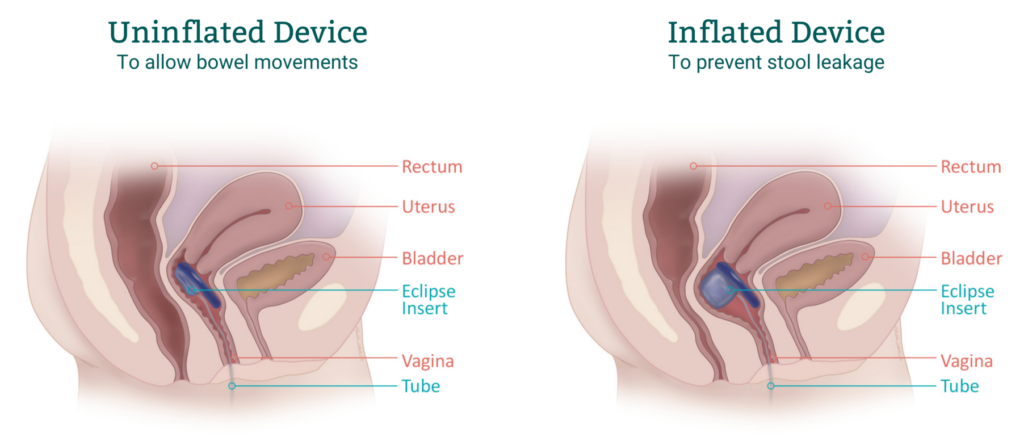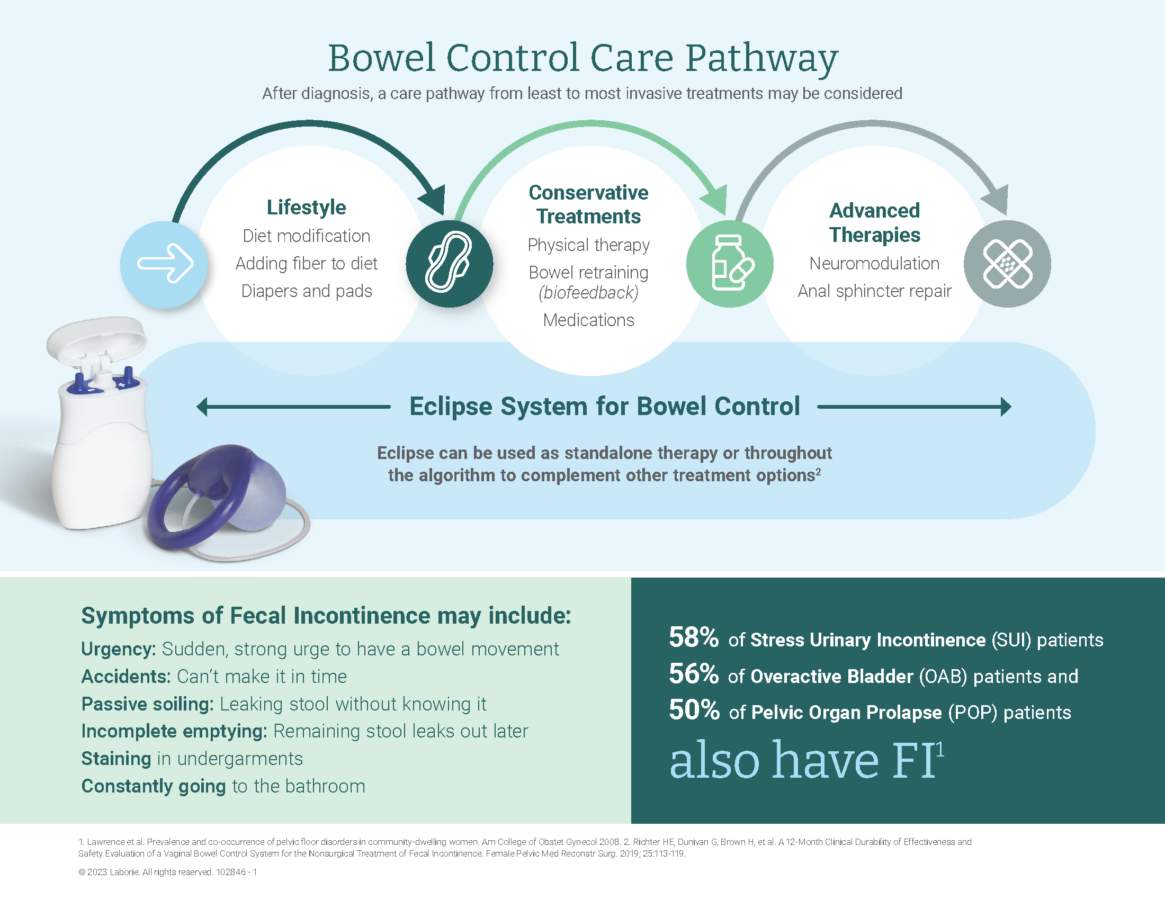Why does this happen to women?
Bowel control issues affect 1 out of 11 adult women1. The pelvic muscles that support your bladder, rectum and uterus can become damaged—often through pregnancy or childbirth. This sometimes causes loss of bowel control. Gastrointestinal conditions such as Irritable Bowel Syndrome can also lead to bowel control issues.
You may have tried or heard about these ways to regain bowel control:
- Changing diet, using medications and wearing protection.
- Performing pelvic floor physical therapy.
- Undergoing a surgical solution such as sphincter repair or sacral nerve stimulation.
- Or you may opt for the Eclipse System, a non-surgical, vaginal insert clinically proven to reduce the frequency of bowel accidents, or even eliminate them altogether.
Good news:
Eclipse can be used as a stand-alone therapy, or alongside other therapies to further enhance treatment effectiveness².























